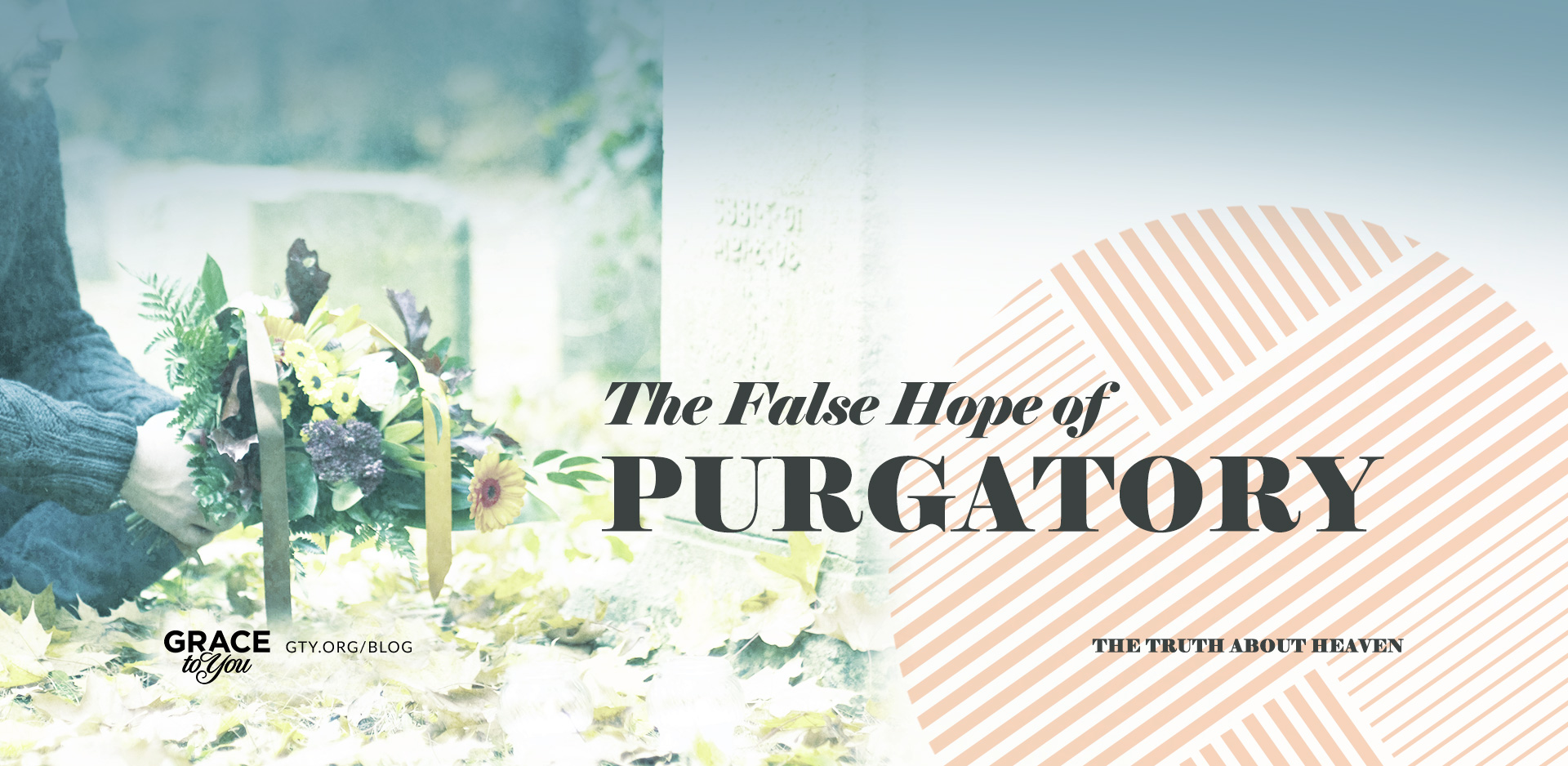ninja007
Gold Member
despite clear evidence in the Bible there is a heaven and hell, nothing in between after this life they continue to falsely teach a second chance after death.
Accepted By Imputation
We know from Paul’s treatise on justification in Romans 4 that God saves believers by imputing to them the merit of Christ’s perfect righteousness—by no means because of their own righteousness. God accepts believers “in Christ.” He clothes them with the perfect righteousness of Christ. He declares them perfectly righteous because of Christ. Their sins have been imputed to Christ, who has paid the full penalty. His righteousness is now imputed to them and—through His imputed righteousness—they receive His full merit. That is what justification by faith means. The Father “made Him who knew no sin to be sin on our behalf, so that we might become the righteousness of God in Him” (2 Corinthians 5:21).
In other words, God does not first make us perfect, then accept us on that basis. He first legally justifies us by imputing to us an alien righteousness, then perfects us by conforming us to the image of Christ. He “justifies the ungodly” (Romans 4:5).
Paul wrote, “Therefore, having been justified by faith, we have peace with God through our Lord Jesus Christ” (Romans 5:1). “Therefore there is now no condemnation for those who are in Christ Jesus” (Romans 8:1). Those verses describe our justification as something already accomplished—a completed reality, not something we are striving for. Jesus Himself described justification as an immediate event when He told how the repentant publican was saved after begging God for mercy: “I tell you, this man went to his house justified” (Luke 18:14).
Scripture clearly and consistently attests to justification as a settled fact for every believer; it is not an ongoing process. We stand before God in faith right now, fully acceptable to Him because of Christ’s righteousness—not because of any doings of our own.
“And as it is appointed unto men once to die, but after this the judgment:”
King James Version (KJV)
False Doctrine and False Hope
Roman Catholic doctrine denies all of that. Catholicism teaches that justification is an ongoing process that depends on the degree of real, personal righteousness we achieve. According to Rome, Christ’s merit imputed to us is not enough to save; we must earn more merit of our own through the sacraments and other good works. Righteousness is infused into us (rather than being imputed to us). But it is obvious that we are not perfectly righteous by any practical measure. So the righteousness we obtain by grace must be perfected by our own efforts.
According to Catholic teaching, this real, personal righteousness that resides in us is the necessary ground on which God accepts us. And our justification is not complete until we are really and completely perfect—by an inherent righteousness, not merely by a legally imputed righteousness. This actually reverses the biblical order, suggesting that we must first be perfected, and only then is our justification complete. In other words, in Roman Catholic doctrine, God does not justify the ungodly.
The Catholic view of justification poses an obvious dilemma. We know too well that even the best Christians fall far short of perfection. No one (Catholic teaching actually says almost no one) achieves absolute perfection in this life. And if our own perfection is a prerequisite for heaven, it would seem no one could enter there immediately upon dying. Any remaining imperfections would need to be worked out first.
The invention of purgatory was necessary to solve this dilemma. Deny that we are justified by faith alone, and you must devise an explanation of how we can make the transition from our imperfect state in this life to the perfect state of heaven. Purgatory is where Roman Catholics believe most people go after death to be finally purged of their remaining guilt and gain whatever merit they may be lacking to enter heaven. Catholicism teaches that this process involves intense pain and suffering.
Oddly enough, although Catholic doctrine denies that the imputed righteousness of Christ is sufficient to save sinners in this life, it does allow the imputation of righteousness from living sinners to those in purgatory. This is why masses are said for the dead. Supposedly the righteousness earned by way of the sacrament is imputed to the person in purgatory, which shortens his or her stay there.
The Catholic doctrine of purgatory offers false hope to people hoping to atone for their own sins on the other side of the grave. Rome’s warped and perverted view of justification will undoubtedly usher into eternal torment many who expected to have more time to achieve perfection.

 www.gty.org
www.gty.org
Accepted By Imputation
We know from Paul’s treatise on justification in Romans 4 that God saves believers by imputing to them the merit of Christ’s perfect righteousness—by no means because of their own righteousness. God accepts believers “in Christ.” He clothes them with the perfect righteousness of Christ. He declares them perfectly righteous because of Christ. Their sins have been imputed to Christ, who has paid the full penalty. His righteousness is now imputed to them and—through His imputed righteousness—they receive His full merit. That is what justification by faith means. The Father “made Him who knew no sin to be sin on our behalf, so that we might become the righteousness of God in Him” (2 Corinthians 5:21).
In other words, God does not first make us perfect, then accept us on that basis. He first legally justifies us by imputing to us an alien righteousness, then perfects us by conforming us to the image of Christ. He “justifies the ungodly” (Romans 4:5).
Paul wrote, “Therefore, having been justified by faith, we have peace with God through our Lord Jesus Christ” (Romans 5:1). “Therefore there is now no condemnation for those who are in Christ Jesus” (Romans 8:1). Those verses describe our justification as something already accomplished—a completed reality, not something we are striving for. Jesus Himself described justification as an immediate event when He told how the repentant publican was saved after begging God for mercy: “I tell you, this man went to his house justified” (Luke 18:14).
Scripture clearly and consistently attests to justification as a settled fact for every believer; it is not an ongoing process. We stand before God in faith right now, fully acceptable to Him because of Christ’s righteousness—not because of any doings of our own.
Hebrews 9:27
“And as it is appointed unto men once to die, but after this the judgment:”
King James Version (KJV)
False Doctrine and False Hope
Roman Catholic doctrine denies all of that. Catholicism teaches that justification is an ongoing process that depends on the degree of real, personal righteousness we achieve. According to Rome, Christ’s merit imputed to us is not enough to save; we must earn more merit of our own through the sacraments and other good works. Righteousness is infused into us (rather than being imputed to us). But it is obvious that we are not perfectly righteous by any practical measure. So the righteousness we obtain by grace must be perfected by our own efforts.
According to Catholic teaching, this real, personal righteousness that resides in us is the necessary ground on which God accepts us. And our justification is not complete until we are really and completely perfect—by an inherent righteousness, not merely by a legally imputed righteousness. This actually reverses the biblical order, suggesting that we must first be perfected, and only then is our justification complete. In other words, in Roman Catholic doctrine, God does not justify the ungodly.
The Catholic view of justification poses an obvious dilemma. We know too well that even the best Christians fall far short of perfection. No one (Catholic teaching actually says almost no one) achieves absolute perfection in this life. And if our own perfection is a prerequisite for heaven, it would seem no one could enter there immediately upon dying. Any remaining imperfections would need to be worked out first.
The invention of purgatory was necessary to solve this dilemma. Deny that we are justified by faith alone, and you must devise an explanation of how we can make the transition from our imperfect state in this life to the perfect state of heaven. Purgatory is where Roman Catholics believe most people go after death to be finally purged of their remaining guilt and gain whatever merit they may be lacking to enter heaven. Catholicism teaches that this process involves intense pain and suffering.
Oddly enough, although Catholic doctrine denies that the imputed righteousness of Christ is sufficient to save sinners in this life, it does allow the imputation of righteousness from living sinners to those in purgatory. This is why masses are said for the dead. Supposedly the righteousness earned by way of the sacrament is imputed to the person in purgatory, which shortens his or her stay there.
The Catholic doctrine of purgatory offers false hope to people hoping to atone for their own sins on the other side of the grave. Rome’s warped and perverted view of justification will undoubtedly usher into eternal torment many who expected to have more time to achieve perfection.

The False Hope of Purgatory
This post was originally published in July 2018. –ed. Let’s be clear from the outset: The Roman Catholic doctrine of purgatory is taught nowhere in Scripture. It was invented to accommodate Cat

